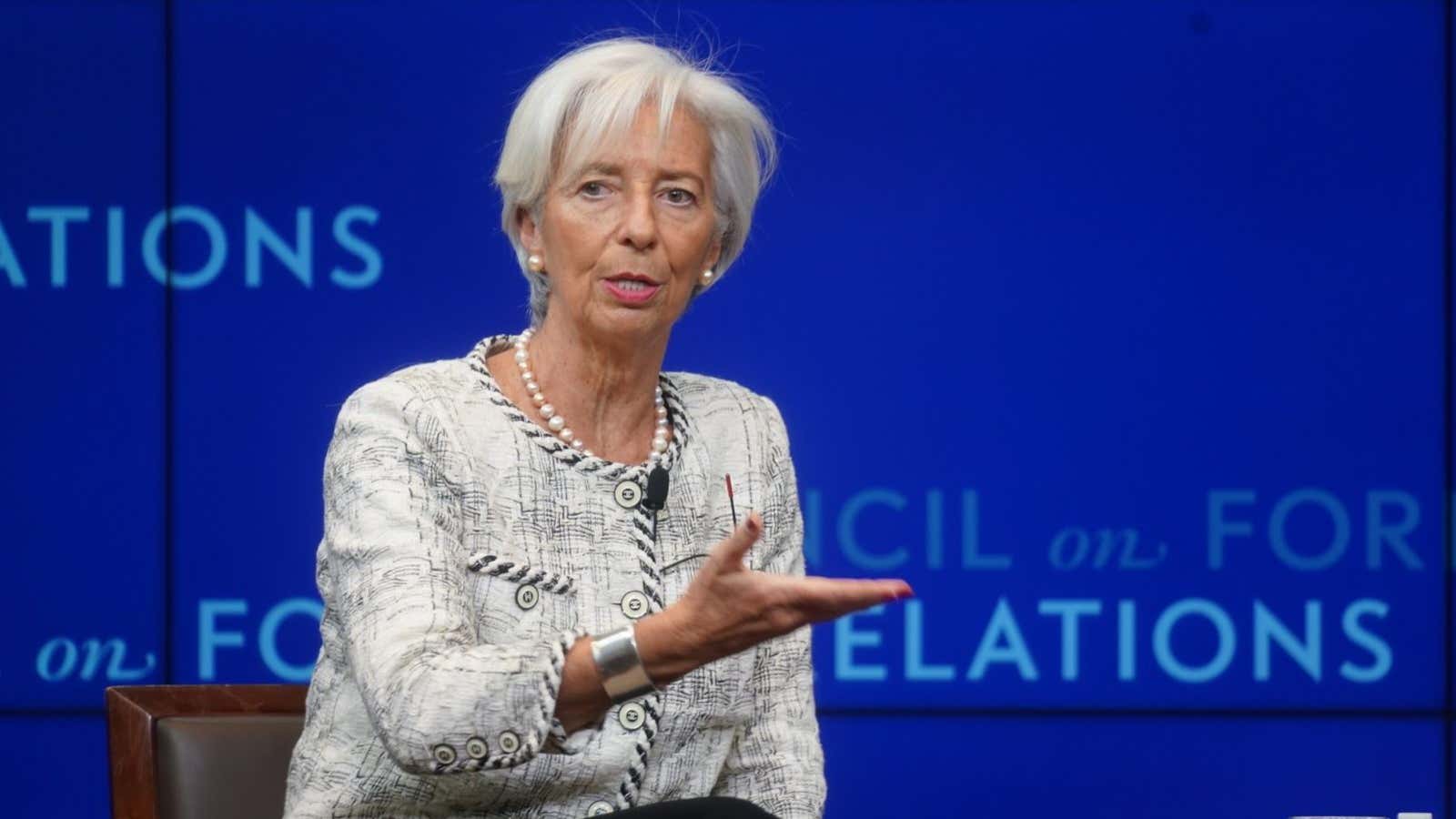At the Council on Foreign Relations today in uptown Manhattan, Christine Lagarde held a packed room rapt during a Q&A on gender inequality and economics. Referencing her famous past remark that the 2008 financial crisis would have looked different if Lehman Brothers had been “Lehman Sisters,” the International Monetary Fund chief speculated that women in finance might make better funding choices, and direct more capital to common-good projects like water dams instead of “football arenas.”
Lagarde then addressed gender quotas, a particularly controversial topic in the US. Asked by an audience member whether there was an alternative to quotas as a means of forcing corporate boards to include women, Lagarde recalled her time as French finance minister, a role she held from 2007 to 2011.
She realized that quotas were necessary when she began holding 1:1 meetings with the CEOs of France’s biggest firms, she said. She asked each CEO whether any women were on their boards of directors. “They all said no,” she said. “So I said, ‘Why is that?’ They said well, you know, we are making an effort…”
“Well first of all, when we see each other next year, I hope you have made progress and you’ve identified more women to join the board,” she recalled answering, “because you’ve got a couple of very aging gentlemen here.”
Th next year, Lagarde was given the same answer, she recalls: “Minister, I tried so hard but I couldn’t find a competent woman to do the job.”
“I knew what I was going to get. I just knew it, so I was prepared,” she said. “I pulled out of my pocket a list of about 30 women who were not only competent, but willing, and just ready to serve.” The list was served with a warning: “Next year, you just come and see me, and if you haven’t changed your board composition, you are in real trouble.”
That was when things started changing, Lagarde says. Coincidentally, in 2011, the French parliament passed the Zimmerman-Copé law, which set thresholds for a minimum female representation in business. The law required at least 40% representation of each gender by 2017, in any firm with over 500 employees and a profit of €500 million ($570 million) for three years.
